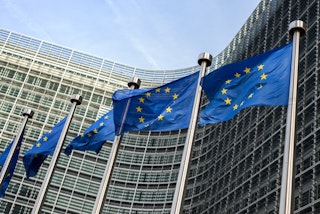The European Commission has published draft revised guidelines on horizontal cooperation agreements. These guidelines provide guidance on how the European Commission interprets the prohibition against anti-competitive cooperation where the parties are competitors. The draft opens up far more opportunities for project cooperation than the current state of the law in Norway.
On 1 March 2022, the European Commission published draft revised guidelines on horizontal cooperation agreements. Section 10 of the Norwegian Competition Act reflects the corresponding provision of EU law, and the guidelines therefore provide important guidance also for the interpretation of the Norwegian Competition Act.
From a Norwegian perspective, the draft's chapter 5.4 on project cooperation ("bidding consortia"), which refers to the situation where two or more parties cooperate to submit a joint bid in a public or private competitive tender, is particularly interesting. The legality of project cooperation has been extensively debated in recent years, and the draft guidelines are the first time the European Commission has announced its view on the legal assessment of such cooperation.
More than half of all the Norwegian Competition Authority's infringement cases concern cooperation in connection with competitions for public contracts. The Norwegian Competition Authority, supported by the Norwegian Supreme Court, has taken a rigid approach to such cooperation and follows a basic principle that situations where competitors, who could submit an individual bid for all or parts of the contract, submit a joint bid in a competitive tender ,constitute an infringement by object. This is almost regardless of whether the cooperation is pro-competitive and pro-efficient, and regardless of whether the cooperation takes the form of a joint bid or subcontracting agreements. The Norwegian Competition Authority states in its guidelines on project cooperation that the conditions for individual exemption from the Norwegian Competition Act as a result of efficiency gains will "normally" not be met in such cases.
The European Commission has, on the other hand, a different view on the legality of project cooperation:
- Firstly, the European Commission seems to be taking a more pragmatic approach to the question of whether two undertakings in a competitive tender are competitors. In practice, the Norwegian Competition Authority has set stringent requirements for an undertaking's possibility to acquire the lack of capacity and competence to be able to fulfil a contract. However, the European Commission emphasises that the assessment of whether two undertakings are competitors must be based on a realistic assessment of whether the undertakings will be able to carry out the contract alone, where relevant factors in the assessment are current and future capacity. Requirements as to acquisition of capacity or competence are not mentioned.
- Secondly, the European Commission states that it cannot generally be presumed that subcontracting agreements between competitors restrict competition.
- Thirdly, cooperation between competitors where the cooperation leads to that the undertakings can submit a more competitive bid than the bid they could have submitted alone, for example in the form of a lower price or better quality, could be legal. This requires that the gains benefit consumers and offset the cooperation's competitive restraints. The European Commission's statements stand in stark contrast to the Norwegian Competition Authority's enforcement practice, where there has generally been little room for efficiency considerations in regard to such cooperations.
The draft guidelines on horizontal cooperation agreements are published for consultation and the deadline to respond is set to 26 April 2022. All stakeholders are welcome to submit their contributions to the consultation.
If chapter 5.4 remains as proposed, it will lead to further access to project cooperation between competitors, with corresponding requirements for changes in the Norwegian Competition Authority's enforcement practice. Whether a project cooperation will be legal, will have to depend on a specific assessment of the undertakings that cooperate and what gains a joint bid realises. Cooperation between undertakings that are generally seen as competitors may be legal if the undertakings manage to document sufficient gains. Quantification of such gains is likely to be the subject of new debates, and for the sake of predictability for the undertakings, the Norwegian Competition Authority should, as soon as the guidelines have been adopted, issue new guidance on this topic.

 Heidi Jorkjend
Heidi Jorkjend
 Wenche Sædal
Wenche Sædal
 Elen Ingrid Cornelia Botten
Elen Ingrid Cornelia Botten


